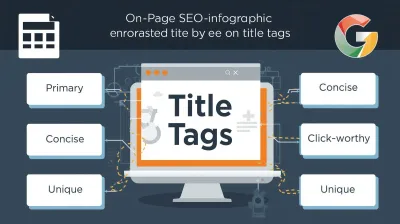Writing PHP code is fun and challenging, but for beginners (and even seasoned developers!), encountering frustrating red error messages is normal. This article compiles 10 of the most common PHP errors, explaining their causes and providing straightforward solutions to get you back to coding smoothly. ✅
1. Parse error: syntax error, unexpected ...
Meaning: The classic! This means PHP doesn't understand the grammar (Syntax) you've written. Something might be missing, misplaced, or mistyped.
Common Causes:
- Missing semicolon (
;) at the end of a line [cite: 1543-1544]. - Mismatched parentheses (
()), curly braces ({}), or square brackets ([]). - Unmatched quotation marks (
'or"). - Typo in a function name, variable name, or keyword.
- Using a reserved keyword incorrectly.
How to Fix:
- Read the error message carefully. PHP usually indicates the *line number* where it got confused (or the line *after* the problem) [cite: 1543-1544].
- Check for missing
;, parentheses, and quotes on that line and the lines *before* it meticulously. - Use a code editor with syntax highlighting; it makes spotting these errors much easier.
// Wrong: Missing ;
echo "Hello World"
// Correct
echo "Hello World";
// Wrong: Missing closing brace }
if ($condition) {
echo "Condition is true";
// } is missing
// Correct
if ($condition) {
echo "Condition is true";
}
2. Undefined variable: ... / Undefined array key: ... / Undefined index: ...
Meaning: You're trying to use a variable, array key, or array index that hasn't been assigned a value yet or doesn't exist.
Common Causes:
- Typo in the variable name (PHP variables are case-sensitive!
$nameis different from$Name). - Using a variable before assigning a value to it [cite: 1851-1852].
- Trying to access an array key that doesn't exist (e.g.,
$_POST['firstname']when the form field name was actually'name') [cite: 1851-1852].
How to Fix:
- Double-check the spelling and case of your variable names and array keys/indices.
- Use
isset()or!empty()to check if a variable or key exists *before* using it [cite: 1851-1852]. - Use the Null Coalescing Operator (
??) to provide a default value if the variable or key doesn't exist [cite: 1851-1852].
// Wrong: Using $mesage before defining
echo $mesage; // Notice: Undefined variable: mesage
// Correct: Define first
$message = "Welcome!";
echo $message;
// Wrong: Key 'name' might not exist in $_GET
echo $_GET['name']; // Warning: Undefined array key "name"
// Correct: Check first
if (isset($_GET['name'])) {
echo $_GET['name'];
}
// Correct (using ??): Provide a default
echo $_GET['name'] ?? 'Guest';
3. Warning: Cannot modify header information - headers already sent by ...
Meaning: You're trying to send an HTTP header (like redirecting with header('Location: ...'), setting a cookie with setcookie(), or starting a session with session_start()) *after* some output (HTML, whitespace, even a BOM) has already been sent to the browser [cite: 1851-1852].
Common Causes:
- HTML, spaces, or blank lines *before* the opening
<?phptag [cite: 1851-1852]. - Using
echo,print, or outputting anything *before* calling header-related functions [cite: 1851-1852]. - Saving your PHP file as UTF-8 *with BOM* (Byte Order Mark) [cite: 1851-1852].
How to Fix:
- Ensure **absolutely nothing** (not even a space or blank line) is output before calls to
header(),setcookie(), orsession_start(). - Move all PHP code that modifies headers to the very **top** of your script, before any HTML.
- Configure your text editor to save files as **UTF-8 without BOM**.
- Use Output Buffering (
ob_start()at the top,ob_end_flush()at the bottom) to hold output temporarily.
4. Fatal error: Allowed memory size of ... bytes exhausted (tried to allocate ... bytes)
Meaning: Your PHP script tried to use more memory (RAM) than the limit configured on the server [cite: 1851-1852].
Common Causes:
- Loading very large datasets (e.g., large images, files, big database results) into memory all at once.
- Loops processing large amounts of data without proper memory management (e.g., appending to a huge array inside a loop).
- Infinite loops that continuously consume memory.
How to Fix:
- Refactor your code to process data in smaller chunks (e.g., read files line by line, fetch database results row by row).
- Investigate loops for potential infinite loop bugs.
- Optimize data handling (e.g., resize images before loading, select only necessary data from the database).
- If truly necessary, increase the
memory_limitin your `php.ini` file or usingini_set('memory_limit', '256M')(if allowed by your host), but this often masks underlying code issues [cite: 1851-1852]. Optimize code first!
5. Warning: include(...): failed to open stream: No such file or directory / Warning: require(...): failed to open stream...
Meaning: PHP couldn't find the file you're trying to include using include, require, include_once, or require_once at the specified path [cite: 1851-1852].
Common Causes:
- Typo in the filename or path.
- The file doesn't actually exist at that location.
- File permission issues preventing PHP from reading the file.
- Using a relative path (e.g.,
include 'includes/db.php') and the script's current working directory isn't what you expect.
How to Fix:
- Verify the spelling and path (remember paths are case-sensitive on Linux/macOS).
- Use absolute paths or paths relative to the current file using magic constants like
__DIR__for reliability [cite: 1851-1852]:require_once __DIR__ . '/../config.php'; - Check file and directory permissions.
6. Fatal error: Uncaught Error: Call to undefined function ...
Meaning: You're calling a function that PHP doesn't recognize [cite: 1851-1852].
Common Causes:
- Typo in the function name.
- Forgetting to
includeorrequirethe file where the function is defined [cite: 1851-1852]. - Trying to use a function from a PHP extension that isn't enabled on your server (e.g., calling
mysqli_connect()when themysqliextension is disabled) [cite: 1851-1852].
How to Fix:
- Check the function name spelling carefully.
- Make sure you've included/required the necessary file *before* calling the function.
- Verify that required PHP extensions are enabled in your PHP configuration (
php.inior hosting control panel) [cite: 1517-1519].
7. Warning: Division by zero
Meaning: You attempted to divide a number by zero, which is mathematically undefined [cite: 1851-1852].
Common Causes:
- The denominator (the number you're dividing by) in a calculation unintentionally became 0.
How to Fix:
- Always check if the denominator is zero *before* performing the division [cite: 1851-1852].
$totalItems = 100;
$users = 0; // Might come from DB or calculation
// Wrong: Potential error if $users is 0
// $itemsPerUser = $totalItems / $users;
// Correct: Check before dividing
if ($users > 0) {
$itemsPerUser = $totalItems / $users;
echo "Items per user: " . $itemsPerUser;
} else {
echo "Cannot calculate items per user because there are no users.";
}
8. Notice: Trying to get property '...' of non-object
Meaning: You're trying to access a property (like ->name) on something that isn't an object. It might be null, false, a number, or something else [cite: 1851-1852].
Common Causes:
- A function that was expected to return an object returned
nullorfalseinstead (e.g., fetching a database row that doesn't exist) [cite: 1851-1852]. - Incorrectly assigning a non-object value to a variable that you later treat as an object.
How to Fix:
- Before accessing an object's property (e.g.,
$user->name), always check if the variable actually holds a valid object and isn'tnullorfalse[cite: 1851-1852].
// Assume $user comes from a database fetch
// $user = $stmt->fetch(PDO::FETCH_OBJ); // Returns false if no row found
// Wrong: Potential error if $user not found
// echo $user->name; // Notice: Trying to get property 'name' of non-object
// Correct: Check first
if ($user && is_object($user)) {
echo $user->name;
} else {
echo "User not found.";
}
9. Warning: foreach() argument must be of type array|object, ... given
Meaning: You're trying to loop through something with foreach that isn't an array or an object suitable for iteration [cite: 1851-1852].
Common Causes:
- The variable you passed to
foreachis actuallynull,false, a string, a number, etc., instead of an array (often due to a database query returning no results or an error) [cite: 1851-1852].
How to Fix:
- Before using
foreach, check if the variable is actually an array or an iterable object usingis_array()or sometimes just!empty()[cite: 1851-1852].
// Assume $products comes from DB
// $products = $stmt->fetchAll(); // Returns [] (empty array) if no results with PDO, not false
// Wrong: Potential error if $products isn't an array
// foreach ($products as $product) { ... }
// Correct: Check first (checking for non-empty array handles empty results too)
if (is_array($products) && !empty($products)) {
foreach ($products as $product) {
// ... process $product ...
echo htmlspecialchars($product['name']) . "<br>";
}
} else {
echo "No products found.";
}
10. SQL Injection Vulnerability (Security Risk!)
Meaning: This isn't a direct PHP error message, but a **critical security flaw**. It happens when you directly insert user-provided data (like from a form via $_POST or $_GET) into your SQL query strings. Attackers can inject malicious SQL code to steal data, delete data, or even take control of your database [cite: 1851-1852].
Common Causes:
- Concatenating user input directly into SQL queries [cite: 1851-1852].
How to Fix (Crucial!):
- **Never** directly concatenate or insert user input into SQL strings.
- **Always** use **Prepared Statements** (with PDO or MySQLi). This method separates the SQL command from the data, preventing user input from being executed as SQL code [cite: 1851-1852].
// Get user ID from URL (unsafe!)
$userId = $_GET['id'];
// WRONG: HIGHLY VULNERABLE TO SQL INJECTION!!!
// $sql = "SELECT * FROM users WHERE id = " . $userId;
// $result = $pdo->query($sql);
// CORRECT: Use Prepared Statements (PDO example)
$sql = "SELECT * FROM users WHERE id = :user_id";
$stmt = $pdo->prepare($sql);
// Bind the user input safely, specifying the data type
$stmt->bindParam(':user_id', $userId, PDO::PARAM_INT);
$stmt->execute();
$user = $stmt->fetch();
if ($user) {
echo "Welcome, " . htmlspecialchars($user['username']);
} else {
echo "User not found.";
}
Hopefully, this guide helps you troubleshoot common PHP errors and makes your coding journey smoother! Encountering errors is part of learning. Read the messages carefully, understand the cause, and tackle them one step at a time. Happy Coding! 🚀






